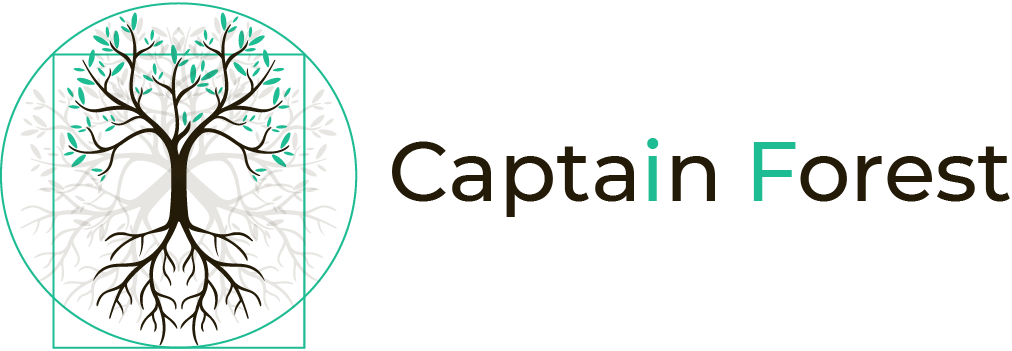 This article is also available in French: click here.
This article is also available in French: click here.
Is Developing Self-Consciousness Necessary to the Ecological Transition?
Developing self-consciousness can result in a behavioral change necessary for a successful ecological transition. Grasping the difference between ‘being’ and ‘doing’ is part of self-consciousness development. This notion can profoundly transform people’s lives and be leveraged to embrace sustainable living habits.

Nicole Bernard, a meditation master living in France, accepted to explain the difference between ‘being’ and ‘doing’ in this exclusive interview with Captain Forest.
Q: What is the origin of this notion – the difference between ‘being’ and ‘doing’?
It is a notion that has been floating around since the dawn of time. It is a common topic in Taoism and for anyone interested in humankind and how humans operate.
Q: What is the difference between ‘being’ and ‘doing’?
They are both closely related. On the one hand, ‘doing’ means being in action in the real world. However, ‘thinking’ precedes ‘doing’, because a thought precedes every action and, therefore, an intention. If the intention is insufficient, there will be no action.
On the other hand, ‘being’ emanates from within without doing anything. The beautiful thing is that humans can act from within, thus transforming themselves.
In contrast, ‘doing’ is the capacity of humans to act outside oneself.
Q: Why is it important to be in ‘being’ rather than ‘doing’?
The emotions and intentions behind your action are as important as the action itself.
For example, you are getting angry at the supermarket for refusing to buy your favorite yogurt because it is in a plastic pot vs. refusing to buy that yogurt without feeling anger.
Your action – not buying plastic yogurt – has a different impact if it is carried out with a clear sense of focus and understanding of a broader context.
In other words, the effect of an action is only as positive as your way of being. The secret lies in the energy that emanates from you; energetically, anger has a much lower quality than the energy of centeredness and understanding.
Q: How can ‘being’ transform a person’s life?
‘Being’ transforms a person’s life, and their relationship with everything changes. It is like suddenly going from a 10m2 room to a 1000m2 one.
‘Being’ is the mission to discover who we are here on Earth.
All living beings have this same mission: the mission of a daisy seed is to become a daisy, and so the mission of every person is to become who they are. Our mission is to ‘be’ instead of being who we want to be.
Q: How do we switch from ‘doing’ to ‘being’?
We switch from ‘doing’ to ‘being’ through awareness.
When you go to a shop and don’t buy plastic, you do it because you are aware. So, you have to expand your awareness. The more you are aware, the more you will act in such a way that changes your being and the environment.
Awareness means developing knowledge of yourself: what am I thinking? What do I feel? What are my unconscious motivations?
As long as you don’t know yourself, you will hardly succeed in influencing your being and, thus, your environment because the first step is awareness.
Q: So, the first step to developing self-consciousness would be to ask: Who am I?
Yes, exactly. Knowing yourself is not egocentric. Knowing yourself is meeting yourself and becoming acquainted with the space around you. In reality, it is about being aware of yourself and your environment.
If you are just mindful of what you are doing without being aware of what is happening around you, then you are in ‘the doing’.
Q: How do we develop an awareness of the self and the space around us?
We develop an awareness of ourselves through body practices. The body and posture are part of the ‘being’. Developing an awareness of the body and the body’s space is necessary.

All energetic body practices allow you to develop this awareness and to be in the “being”. The reality where you live in your daily life is your physical body.
It is, therefore, in the body that everything happens. We feel through our body, which connects us to Earth. Without a connection to our body, there is no connection to Earth.
Q: What three tips would you give to develop an awareness of the self and the space around us?
Here are four of my best tips:
- Practice an activity that enhances global body awareness (Yoga, Tai chi, Qi Gong, etc.),
- Be silent for a few minutes every day (meditate),
- Deep dive into yourself to develop a knowledge of yourself,
- Become yourself with joy.
Nicole Bernard was born in 1957. She has been teaching Tai Chi and Chi for 45 years. She offers individual work on the energetic and psychic body.



Site intéressant, on peut apprendre plusieurs choses et il permet une veille environnementale